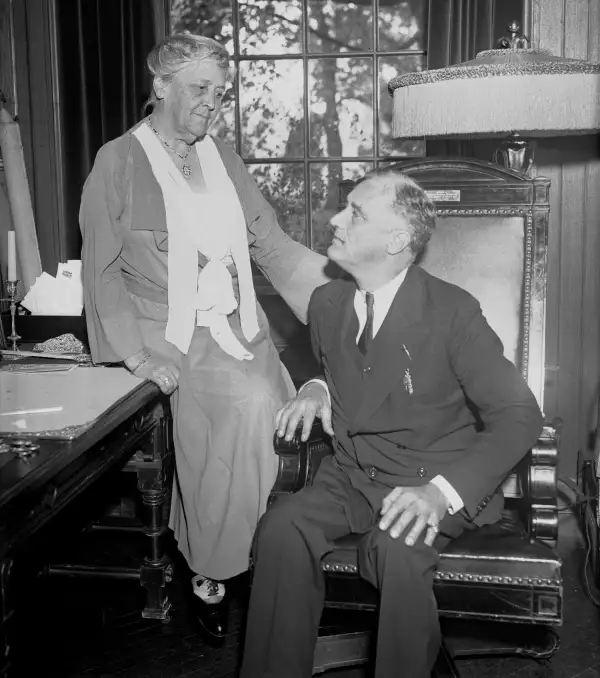College Etiquette Tips for Helicopter Parents… from 1925

Today’s college administrators may think of helicopter parents as a recent nuisance. But it turns out they’re hardly a new phenomenon on campus.
In fact, they seem to predate the flying machine that gives them their name.
A 1925 guide to college etiquette observed that, “It is a temptation to parents who have gone to college to accompany their children when the latter enter. If they yield to this friendly impulse, their stay should be entirely social. It is better for them to take lodgings in town and come to the campus only as visiting alumni.”
Alas, that wise advice came too late for such students as the future President Franklin D. Roosevelt, the future World War II General Douglas MacArthur, and the future Democratic presidential candidate Adlai Stevenson. Their mothers not only accompanied them to college (Harvard, West Point, and Princeton respectively) but took up residence there during the lads' undergraduate years.
MacArthur’s mother was said to have chosen a hotel room from which she could see the light in her son’s dorm window. Stevenson’s mom was known to drop by his room to collect his dirty laundry, much, apparently, to his embarrassment.
The etiquette book continued that, “In all academic matters, it is for the student to see to his own registration, interviews with faculty members, and entering classes, and to take his chances unaided and on an equal basis with the others who have come to school alone.”
As to when parents might want to visit, the author suggested “after the student is settled and can find his way about—perhaps by Thanksgiving time…. Thus they carry away the memory of an alert, capable student who is a real personage, instead of the dazed, uncertain newcomer of a few weeks before. It is more pleasant for all concerned.”
